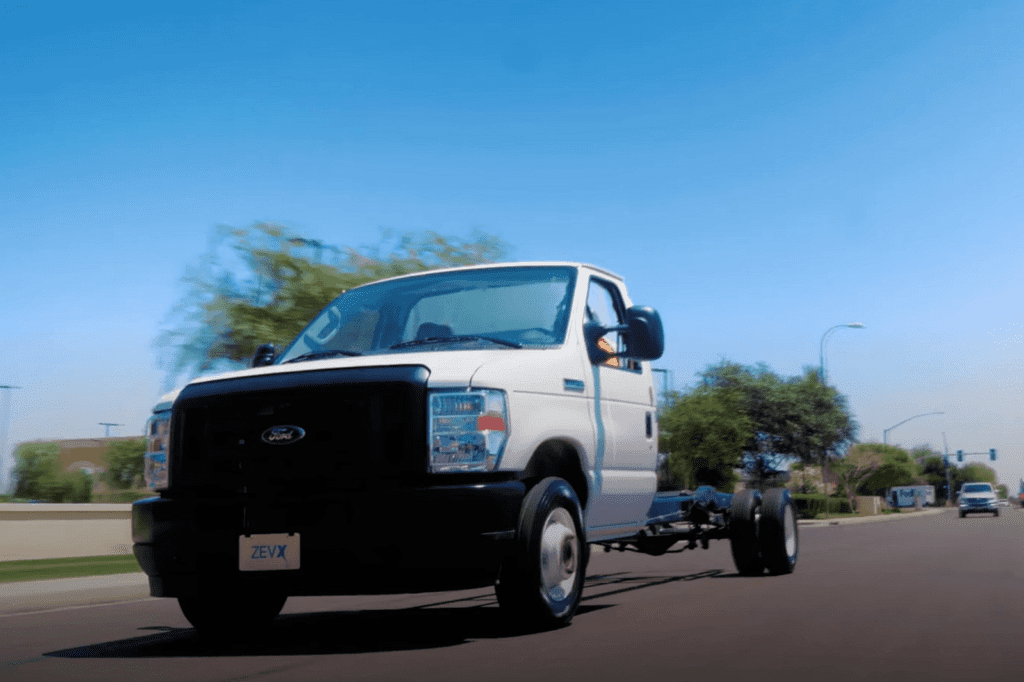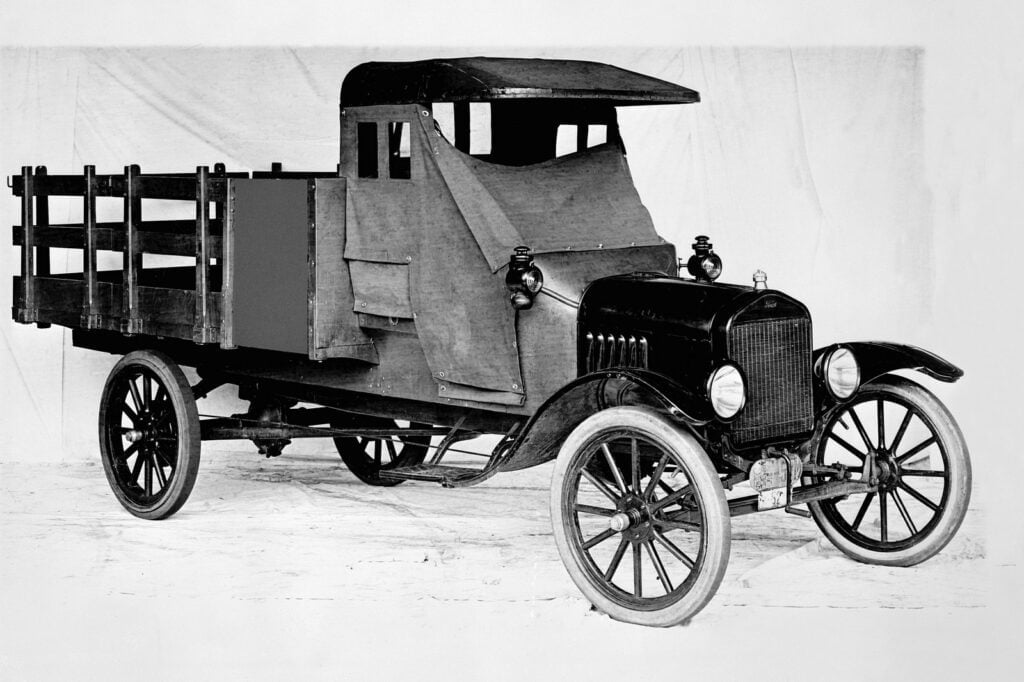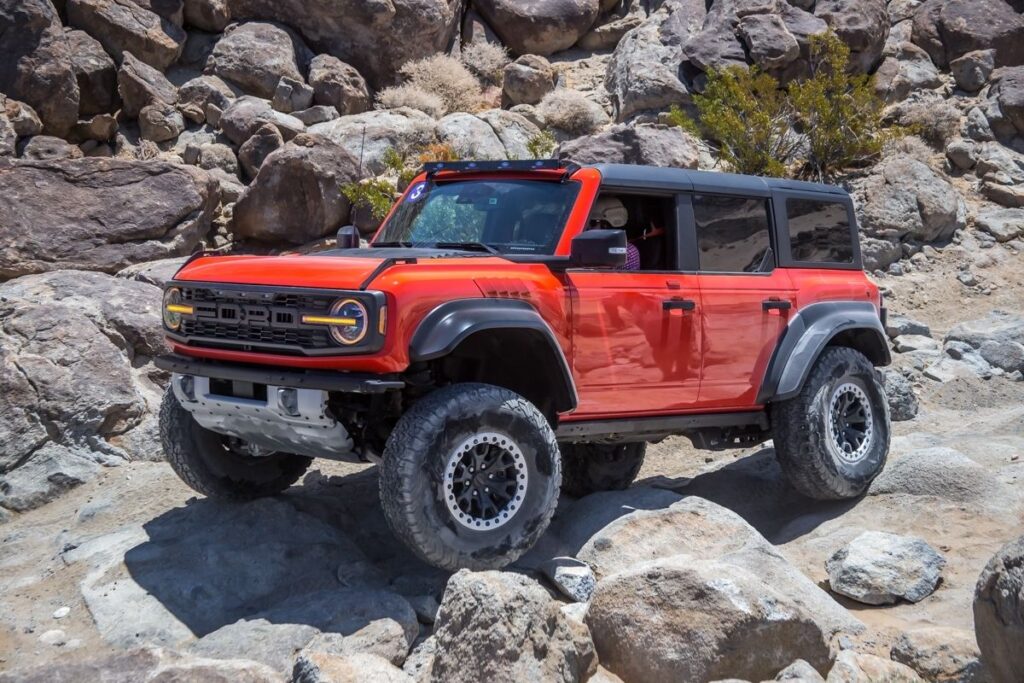Ford F-250 Super Duty With EV Conversion Has Terrible Range

Ford F-250 Super Duty With EV Conversion Has Terrible Range
But the conversion company believes there is value in converting these pickups to electric power.
An Arizona-based company known as ZEVX is making it more straightforward for businesses to convert their gas-guzzling fleets to fully electric models. Without needing to purchase a brand-new EV from scratch, there are significant savings to be had by converting an existing gas-powered model to an electric one.
Already, ZEVX has conversion kits for popular vehicles like the Ford F-Series (F-250 and F-350 Super Duty), Ford E-Series, Ram 1500, and Mercedes-Benz Sprinter. With impending bans on the sale of CO2-emitting vehicles and the government’s massive investment in improving charging infrastructure, EV conversion companies could be a viable alternative for extending the life of gas-powered vehicles and aligning businesses with new regulations.
Jeff Boone, vice president of marketing for ZEVX, says that the company makes as few changes as possible to the interiors of converted vehicles to prevent driver confusion.
Speaking to Automotive News, Boone said, “The A/C controls [and the gears], we keep as much as we can [from the ICE car] so that an individual doesn’t get in and say, ‘wait a minute, what do I do, how do I do this?’ It’s pretty much the same vehicle that’s been electrified.”
The one visible difference in the converted pickup or van is that ZEVX installs a new digital display ahead of the driver. Although this display doesn’t look as premium as the digital cluster in a standard F-250, it clearly shows data like the battery temperature and state of charge.
In the transition to an EV, Boone highlights how businesses can save money. This includes reduced vehicle maintenance costs since an electric powertrain has fewer moving parts, along with fewer replacements of brake pads and discs since drivers will be able to rely on regenerative braking more often. Tune-ups, oil changes, and air filters will also be eliminated.
Boone claims that the electric conversion process takes one to three months, depending on the vehicles involved. Furthermore, ZEVX can convert fleets across the United States, not just in Arizona.
It sounds promising, but what kind of performance and range can customers expect from a converted electric pickup? Well, the ZEVX Athena Kit for the Ford F-250 and F-350 includes a 62-kWh Standard Range lithium-ion battery and a single electric motor.
Producing 302 horsepower and 369 lb-ft of torque, it’s outgunned by the gas F-250’s standard 6.8-liter V8 with 405 hp and 445 lb-ft. But a bigger issue for us is the small battery that can only allow for a range of between 80 and 120 miles. That’s not much, and the electric conversion makes the heavy-duty pickup unsuitable for towing.
For pickups that spend most of the day at a single job site moving around equipment and tools, perhaps it will suffice. But for delivery vans that cover greater distances, that’s very little range to work with.
The Athena Kit is compatible with 2014 to 2023 examples of the Ford, retains all OEM components and functions, and caters to all cab designs. However, the spec sheet does specify that only two-wheel-drive pickups need apply, which is no surprise since this is a single-motor EV conversion.
But let’s imagine that there was a use case for a fleet of F-Series trucks where 80-120 miles was sufficient, and where these vehicles could be reliably charged at the end of each day. In this case, ZEVX estimates annual savings of $8,975 for a converted F-250 or F-350, since maintenance is drastically cut and fuel costs are eliminated. Multiplied by a fleet of 15, the savings are substantial. However, that depends on the conversion cost per vehicle, something that ZEVX doesn’t stipulate on its site, other than to say that discounts are available based on fleet volume.
For businesses that can live with the compromises of converting a large gas-powered pickup to electric power, there is value in ZEVX’s offering. But the poor range explains why Ford said its Super Duty lineup will not be going electric in the near future.





Responses